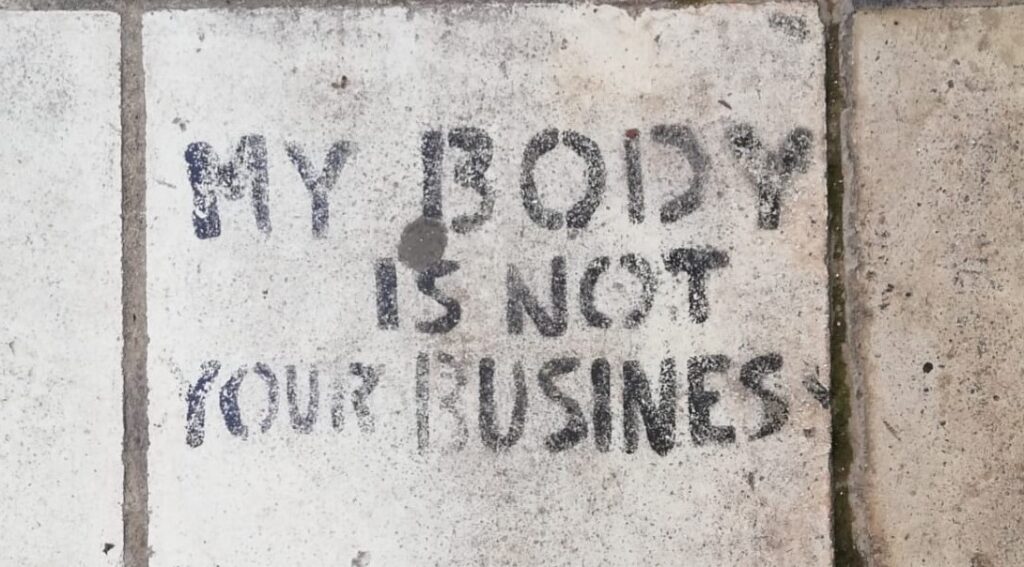Note from Martin: Latest post by Gaz below and here is a link to a guest article he wrote for “iwitnesschildmigration / Understanding the journeys of unaccompanied minors in Europe”. (Click on Image.)

I used to be really into the Church Unity stuff, the one diverse church in the locality working together and all that jazz. I guess I feel there are bigger things at stake now than our ability to get on across tribes and doctrines, so it’s slipped from view for some years now.
Part of my desire was to see stories released which could be a collective mirror for the church to look into and know that good things are happening, new things, different paradigms and approaches.
A team of us would pull together a glossy forty-page magazine and distribute 2,500 of them across our local Bournemouth churches. In truth it was naughty and subversive in that it told stories and opened up approaches to faith and action that were unlikely to be told from many of the those church platforms.
What did it accomplish? We did 4 of these, perhaps 100 stories and simply put I have no clue at all as to who or what it impacted. Perhaps the church has to many stories already, which exist for its own edification.
I went through a paradigm shift of my own in the following years in terms of how stories could be told to my own housing estate. I had managed to secure some funding for a local community group to create a simple magazine for the immediate community of 5,000 in our split private and council home estate.
The local church were involved, the pastor got to do a preach on the inside cover and then there were an uncomfortable amount of articles about things which took place in the church, and almost zero about what took place in the large community centre the opposite side of the same car park.
I found myself becoming resentful of the church co-opting a community resource to place its own story as centre stage. The conversation I had with myself was triggered when I heard a pastor I knew talking about his model for community, a story of having people come to live with him, for some close proximity invasive mentoring and other ideas.
What went through my mind was, ‘that’s another bloody church story’, as though we have the monopoly on stories of life and light, believing these are the key to transforming and loving our localities. In reality, I knew two women in my own street who lived in extended family situations, they took in other peoples kids, housed waifs and strays, not as a model, not for the next self aggrandising talk… just because.
I never did create a vehicle for my own communities stories, but every opportunity I had where I heard of a Christian group telling its own stories back to the community at large, I bullied them as best I could to allow the community to tell its own stories of life and light, back to itself.
Why? Because they are there, those stories exist, they need affirming and perhaps the community has a more significant role in healing itself than we understand.
During this time of inner processing, I was helping Barry, the neighbour two doors down from me. I was doing some welding for his fair ground rides, games and other attractions. He took me in for a cup of tea and I was shocked to see all these pictures around the lounge, him with celebrities, him getting awards and medals from newsreaders and others. I was amazed that his quiet life just two doors down was actually one of raising hundreds of thousands to provide electric wheelchairs to those who could not afford them.
I think it was around 3 years before his death that he got a letter from the Queen to come and receive an OBE (order of the British empire) at the Palace, in recognition of his years of service to the disabled community.
The crazy thing is, there are magnificent layers of goodness you can find if you simply look and listen to those we often pass on our way to work or on our way to church. I was already screaming inside ‘these are the stories of life and light that must be told, of the ordinary extraordinary people around us. Stories, which will help a community view itself as ‘well’ and ‘living’ and inspire courage’.
Then he drops this bit of news on me, as my dunked rich tea biscuit breaks off and floats too quickly out of sight for me to grab it, “That’s two of us in town now, that have OBE’s, the other one is Janet, she was doing really great stuff, we grew up together in the same orphanage…”!
I was undone; I lived next to this guy for 15 years and knew little of the redemptive life that was taking place in and through this formerly abandoned son.
We do not have a monopoly on hope, life and self-sacrifice. Sometimes, perhaps most of the time, it is not the story of the ‘separated off from life’ church that will bring a community to transformative beauty; it is the stories that it can tell back to itself.
I’m not looking to diminish our own stories, but ours are one of many. It is my sincerest hope, that we do have stories to tell, which are of life and light.
Remember this though, I think we are in trouble if the best stories we ‘do’ tell, are someone else’s, or just plain old. That’s something I’m saying back to myself as I write this ☺

